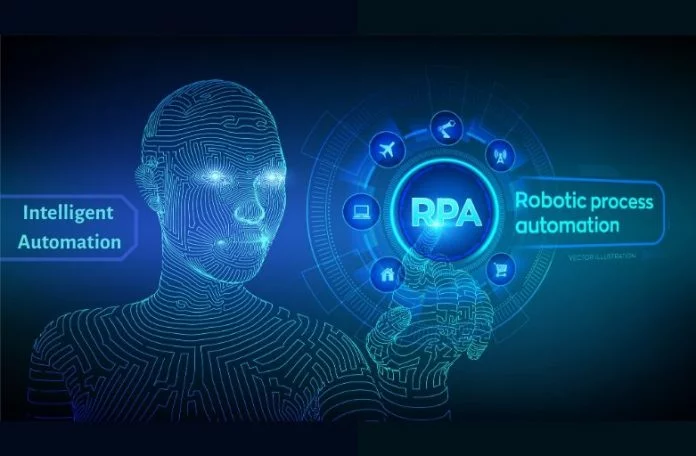Automation is the technique of creating a process within a system that helps an organization in operating its systems automatically.
Automation services are being used in various sectors like IT, manufacturing, transportation, operations, etc.
The evolution of automation in this decade is expected to rise at a great speed.
Automation of your process may involve the use of various technologies like robotics, telemetry sensors, etc.
Now, we’ll go over the difference between the two technologies, which are the major divisions of automation, i.e., Intelligent Automation vs RPA.
Intelligent Automation (IA)
Intelligent automation provides automated solutions to the software. It also makes use of artificial intelligence and machine learning for the decision-making process.
Also, it helps an organization integrate the systems that are present within — thus helping reduce the storage of duplicate data.
Robotic Process Automation (RPA)
RPA is used to reduce the repetitive tasks that are performed by a human. With RPA tools, an organization can interpret applications for triggering responses, establishing communications with other systems, or processing a transaction.
RPA can be used to generate email responses or to deploy bots. This can be done through different automated ERP systems.
RPA works on a set of rules that are used to automate work and not have any variation. RPA helps you minimize repetitive tasks. For example: filling out your details for login.
But when unstructured data is involved, RPA lacks scalability. Here in IA comes into the act.
Intelligent automation, or IA, is a combination of all the things that are present in RPA, but it also contains very useful bots. These bots have the capability to learn and analyze data in real time.
Companies using IA use bots that are capable of thinking on their own. These bots help in improving the efficiency of an organization by fulfilling the orders received from the customers.
While in the supply chain, these bots can also travel around the warehouses without colliding with other traffic. Thanks to the AI-derived intelligence and sensors present in it.
In the case of companies using RPA, it handles constantly changing shipping status and orders from the customers. The RPA also helps an organization in providing insights about the orders that a customer has placed.
With RPA, the customer also gets an estimated delivery time as soon as they select the product.
As we know, traditional banking processes are very lengthy. RPA is used in banks to fetch information about customers. Also, it can be used to fix appointments.
RPA also helps customers select the financial product that suits them the most. Also, it can renew insurance policies for the customers.
On the other hand, intelligent automation helps in the processing of incoming and outgoing transactions. This also helps investigate payment issues while reducing dependency on employees.
Also, IA can create reports and help companies in drawing conclusions, and that too, without any human intervention.
Risk management is also key in IA. It helps the companies identify the potential risks involved in a transaction.
Also Read: Blue Prism Vs. UiPath: Which Tool is Better?
- UiPath
- Blue Prism
- Automation Anywhere
- AutomationEdge
- AntWorks
- BetterCloud
- Leanplum
- 6Sense
- WorkFusion
- Kyndi
The first variant of RPA was introduced 20 years back. At first, it consisted of only screen scraping and desktop macros, which were used to automate tasks.
At that time, ERP systems were being developed but consisted of a lot of manual work. So a need arose at that time to automate such things, but RPA was still not capable of doing so.
Since RPA at that time was not capable of doing such things, an update to it was made as a lot of work was still done manually.
But this time, the update made sure the work became automated with the help of adding extensions and add-ons.
Now the need for 3rd-generation RPA arose.
Here, modern cognitive functions were brought into use. These were based on machine learning, NLP, and AI tools. These tools helped in automating the software with ease.
The evolution of RPA over the years has resulted in business growth for many companies. It also helped many businesses improve performance and lower operational costs.
There are still many companies in the market that are using manual techniques for doing work, which is very repetitive. Such work can be automated using bots.
Moreover, those processes that are complex and require human interference can also be slightly automated using such bots.
As automation technology evolves, the need to capture value is also on the rise. To align with this rise and to gain customers, intelligent automation is now preferred by many organizations.
Intelligent automation technology consists of various bots that can mimic humans and can work nonstop, providing more ROI to the business.
Conclusion
For now, we can say that there’s a massive potential for intelligent automation to improve the efficiency of the business.
Also Read:

